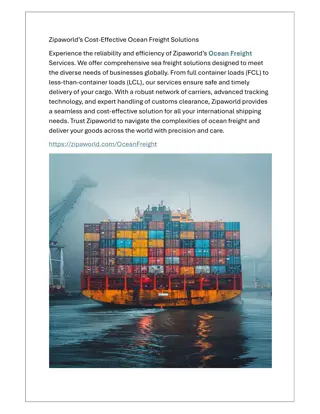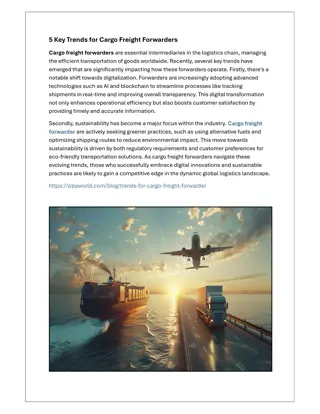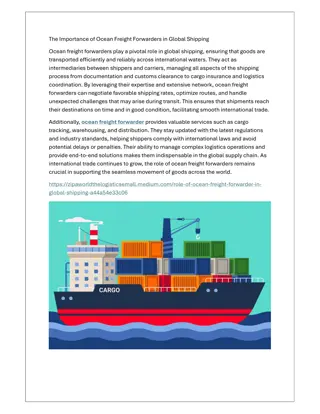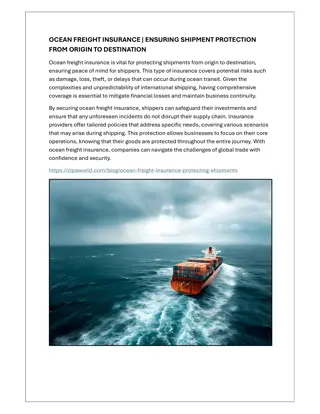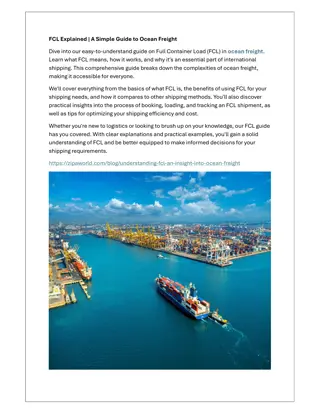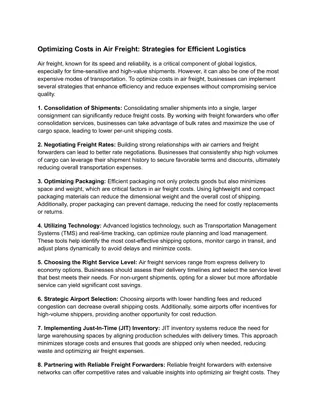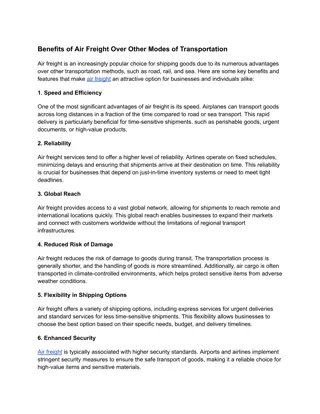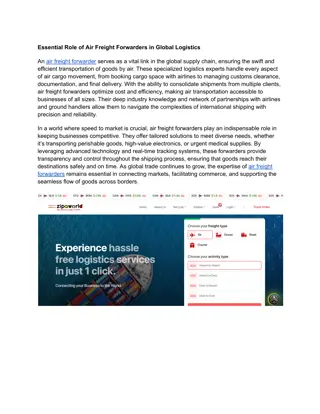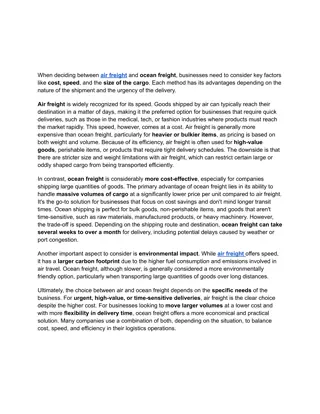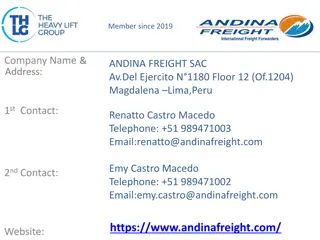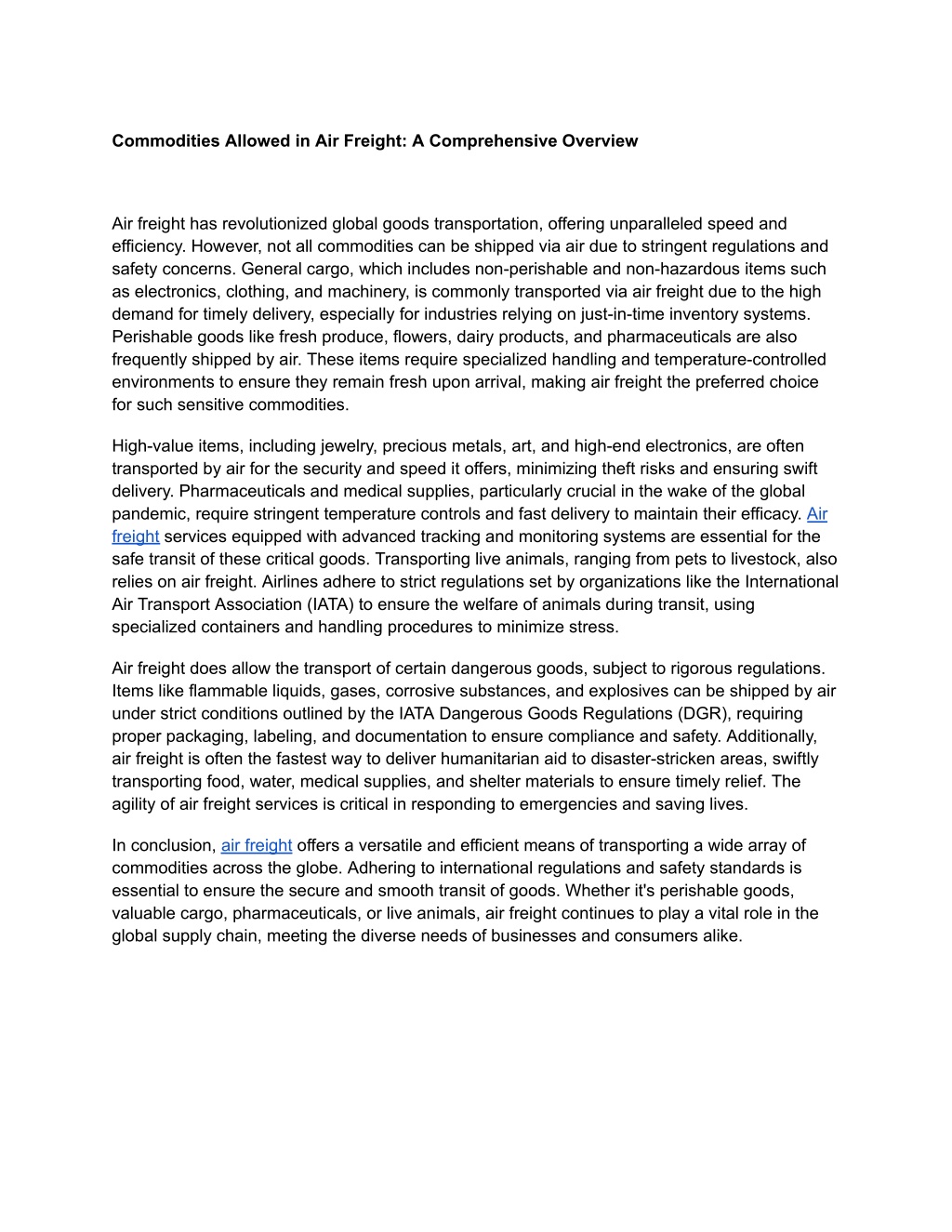
Commodities Allowed in Air Freight_ A Comprehensive Overview
Air cargo tracking lets you monitor your air shipment's journey from start to finish. By using a unique tracking number, you can easily see where your package is at any given time, whether itu2019s in transit, at customs, or has been delivered. This
Download Presentation

Please find below an Image/Link to download the presentation.
The content on the website is provided AS IS for your information and personal use only. It may not be sold, licensed, or shared on other websites without obtaining consent from the author. Download presentation by click this link. If you encounter any issues during the download, it is possible that the publisher has removed the file from their server.
E N D
Presentation Transcript
Commodities Allowed in Air Freight: A Comprehensive Overview Air freight has revolutionized global goods transportation, offering unparalleled speed and efficiency. However, not all commodities can be shipped via air due to stringent regulations and safety concerns. General cargo, which includes non-perishable and non-hazardous items such as electronics, clothing, and machinery, is commonly transported via air freight due to the high demand for timely delivery, especially for industries relying on just-in-time inventory systems. Perishable goods like fresh produce, flowers, dairy products, and pharmaceuticals are also frequently shipped by air. These items require specialized handling and temperature-controlled environments to ensure they remain fresh upon arrival, making air freight the preferred choice for such sensitive commodities. High-value items, including jewelry, precious metals, art, and high-end electronics, are often transported by air for the security and speed it offers, minimizing theft risks and ensuring swift delivery. Pharmaceuticals and medical supplies, particularly crucial in the wake of the global pandemic, require stringent temperature controls and fast delivery to maintain their efficacy. Air freight services equipped with advanced tracking and monitoring systems are essential for the safe transit of these critical goods. Transporting live animals, ranging from pets to livestock, also relies on air freight. Airlines adhere to strict regulations set by organizations like the International Air Transport Association (IATA) to ensure the welfare of animals during transit, using specialized containers and handling procedures to minimize stress. Air freight does allow the transport of certain dangerous goods, subject to rigorous regulations. Items like flammable liquids, gases, corrosive substances, and explosives can be shipped by air under strict conditions outlined by the IATA Dangerous Goods Regulations (DGR), requiring proper packaging, labeling, and documentation to ensure compliance and safety. Additionally, air freight is often the fastest way to deliver humanitarian aid to disaster-stricken areas, swiftly transporting food, water, medical supplies, and shelter materials to ensure timely relief. The agility of air freight services is critical in responding to emergencies and saving lives. In conclusion, air freight offers a versatile and efficient means of transporting a wide array of commodities across the globe. Adhering to international regulations and safety standards is essential to ensure the secure and smooth transit of goods. Whether it's perishable goods, valuable cargo, pharmaceuticals, or live animals, air freight continues to play a vital role in the global supply chain, meeting the diverse needs of businesses and consumers alike.



